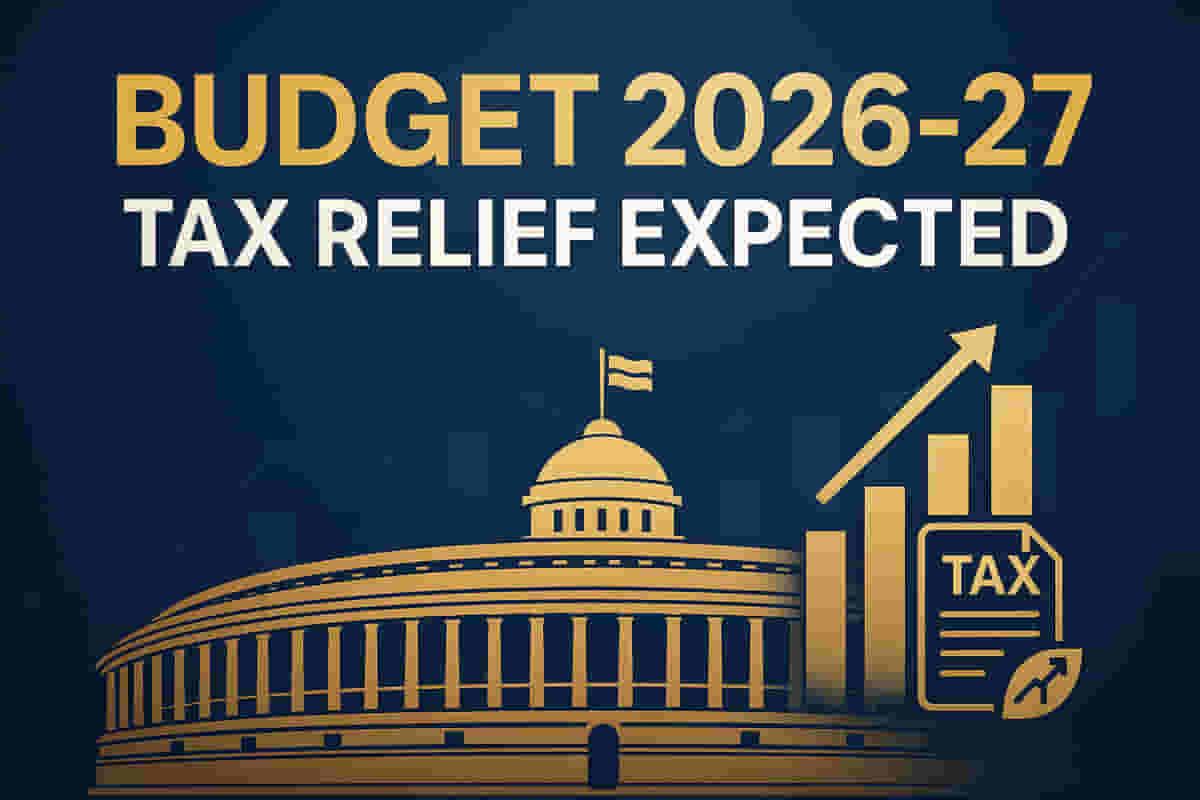India's Budget 2026-27 Preparations Begin: Taxpayers Anticipate Relief Amidst New Income Tax Act Transition
Economy
|
30th October 2025, 4:44 PM

▶
Short Description :
Detailed Coverage :
Preparations are underway for India's Union Budget 2026-27, scheduled for presentation on February 1, 2026. The Finance Ministry has solicited proposals from trade and industry on direct and indirect tax structures, focusing on rate rationalisation and simplification of compliance, with suggestions due by November 10. This upcoming budget is particularly crucial as it will be the last full budget before the new Income Tax Act, 2025, takes effect from April 1, 2026, replacing the existing six-decade-old law.
Taxpayers are voicing significant expectations. Many under the old tax regime hope for increased basic exemption limits and a higher deduction limit for Section 80C (currently Rs 1.5 lakh) to Rs 2 lakh, along with revised tax slabs. They also seek alignment with the new tax regime, which previously saw tax-free income raised to Rs 12 lakh and standard deduction introduced. Expectations also include higher deductions for home loan interest, medical expenses, and benefits for senior citizens.
The transition to the Income Tax Act, 2025, is anticipated to simplify tax filing and refund processes. Key features of the new act include simplified language, fewer sections, a replacement of 'assessment year' with 'tax year', and allowing refunds even for delayed filings.
Furthermore, taxpayers are looking for rationalised capital gains tax structures across various asset classes and greater clarity on the taxation of digital assets and global income.
Impact: This budget and the impending new tax law can significantly influence individual taxpayers' disposable income, investment decisions, and overall compliance burden. For the government, it's a balancing act between fiscal prudence and providing relief, potentially impacting revenue collection and economic sentiment. The transition is expected to foster a more predictable and citizen-friendly tax environment. Impact Rating: 8/10
Difficult Terms: Union Budget: The government's annual financial statement outlining its income and expenditure plans for the upcoming fiscal year. Finance Minister: The senior government official responsible for the country's finances, who presents the budget. Tax Measures: Specific proposals for changes in tax laws or policies. Revenue: Income generated by the government, primarily through taxes. Direct Tax: A tax levied directly on an individual's or organization's income or wealth (e.g., Income Tax). Indirect Tax: A tax levied on goods and services, which is collected by an intermediary from the person who bears the ultimate economic burden of the tax (e.g., GST). Rate Rationalisation: The process of simplifying tax rates by reducing the number of tax slabs or making them more logical. Compliance Simplification: Making the process of adhering to tax laws and filing tax returns easier for taxpayers. Tax Research Unit (TRU): A specialized unit within the Revenue Department that examines and vets proposals for tax changes. Taxpayers: Individuals or entities liable to pay taxes to the government. New Tax Regime: A current income tax system that typically offers lower tax rates but fewer deductions and exemptions. Old Tax Regime: The traditional income tax system that allows for various deductions and exemptions. Rebate: A reduction in the amount of tax payable, often based on specific conditions like income level. Standard Deduction: A fixed amount that salaried individuals can deduct from their gross income before calculating taxable income. Section 87A: A provision in the Income Tax Act that provides a tax rebate for individuals whose total income does not exceed a specified limit. Section 80C: A section of the Income Tax Act that allows for deductions on certain investments and expenses, such as life insurance premiums, tuition fees, and contributions to EPF. Section 80D: A section of the Income Tax Act that allows for deductions on health insurance premiums paid for oneself, family, or parents. Basic Exemption Limit: The minimum amount of annual income that is not subject to income tax. Capital Gains Taxation: Tax applied to profits made from the sale of assets like stocks, bonds, property, or mutual funds. Income Tax Act, 2025: A new comprehensive law approved by Parliament to replace the existing Income Tax Act, aiming to modernize and simplify tax regulations. EPF (Employees' Provident Fund): A retirement savings scheme where employees and employers contribute a portion of the salary. TDS (Tax Deducted at Source): A mechanism where the payer deducts tax at a specified rate before making payments to the payee and deposits it with the government. Assessment Year: The year in which income earned during the previous financial year is assessed for tax purposes. Tax Year: A term, replacing 'assessment year' in the new act, referring to the period for which income tax is calculated. Digital Assets: Assets that exist only in digital form, such as cryptocurrencies, NFTs, or digital collectibles. ESOPs (Employee Stock Options): A benefit provided by companies allowing employees to buy company shares at a predetermined price. Fiscal Prudence: Careful and responsible management of government finances, focusing on controlling spending and debt.